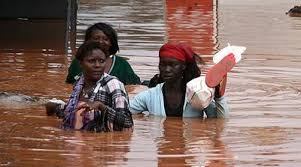Hello Millenial Readers,
It’s now been almost three weeks since the devastating floods hit different parts of the country. Its consequences have been evident, properties destroyed and lives lost.
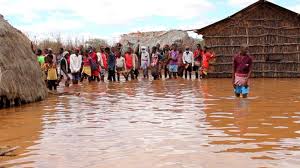
The other flipside of it has been the deteriorating health of Kenyans. It’s no wonder that hawkers are walking around selling creams to be applied on joints and swollen feet. It got me thinking, every other day a good number of people are wading in the flooded waters, some intentionally, others are without any other option. However, what are health complications involved?
Direct Health Impacts
These are the first-hand health effects that could be experienced when a person encounters floods.
1. Drowning
Drowning exists, as the most extreme, yet most common health hazard during times of floods. According to the World Health Organization, drowning happens when a person’s breathing is affected by being submerged in a liquid (in this case floods) leading to death, injury or no injury. The force of the flooded waters as well as the debris carried, pose a threat to human life. Many are the victims who have drowned because of underestimating the depth and power of flooded waters. Let me remind us that water is the most powerful element; and according to my high school Chemistry teacher, water molecules have very strong cohesive forces thanks to their ability to form hydrogen bonds. Water, to be precise flooded water, is a force to reckon with! The same precaution applies to motor vehicles attempting to drive on flooded roads, especially near river banks. Floods should not be underestimated.
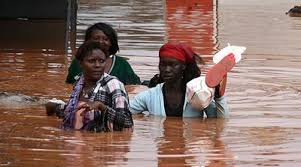
2. Hypothermia
This condition is common to countries that experience snow annually. However it is not restricted to just those areas. Since rain water is also cold, currently Kenya is almost at an equal potential to having its citizens experience the same condition. Hypothermia is defined as a medical emergency. A condition that occurs when the core body temperature drops below 35 degrees. With the floods, many people are at a risk of contracting hypothermia, due to the following reasons;
- Long periods of time in flooded waters.
- Exposing your body to wet clothing due to rain or wading in the floods.
- Wearing clothes that are not warm enough for the weather conditions.
- Living in a house that’s too cold.
Common symptoms of Hypothermia include:
- Shivering
- Weak pulse
- Drowsiness or low energy
- Clumsiness
- Confusion
- Lack of consciousness
To prevent hypothermia, it is advised that one takes the following precautions:
- Wear protective covering specifically for your head, neck, face and hands to prevent body heat from escaping.
- Avoid wet clothes and strive to stay dry
- Avoid activities that cause a lot of sweat. Cold weather and wet clothes, don’t go together.
3. Animal Displacement and Animal Bites
The truth is that we are not the only ones suffering from heavy rainfall and flooding. Animals too have been affected by being displaced from their various habitats. Meaning that they may find their way into our homes in search of food and shelter, putting us all at more risk. They are said to be ‘uninvited guests in our homes and neighborhoods’. To some it’s been the rats, spiders, snakes, to others even crocodiles and hippos, to me it was a crab. I saw one this morning, meters away from our gate. I had only seen such a creature once, and it was in Mombasa, but now I’m seeing it outside my home. How weirdly interesting?
Even so, it’s one thing to see and another thing to be bit by them. Snake bites are deadly, therefore it is advisable to remove any remains of food lying around your home which may attract them,any other animal or insect. Similarly, stay alert and remember to close any opening that may be used as an entry.
4. Water contamination
The flooded waters could contaminate the local water and food supply, as well as damage the sewage system. This increases chances of water-borne diseases such as:
- Typhoid fever
- Dysentery
- Diarrhea
- Amebiasis
- Cholera
In order to protect yourself from these diseases, make sure to use clean water and food. Dispose waste safely, so that it doesn’t end up contaminating your food and water. In addition, immunization from any water related disease especially for those who reside in areas prone to communicable diseases, is crucial for good health.
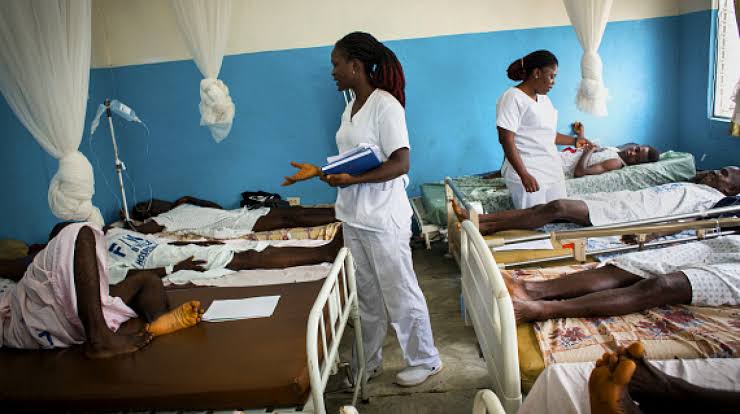
Indirect Impact
This kind of impact is not experienced immediately but it can be foreseen as a result of a person’s action and reaction of their calamity.
- Mental Health
It being mental health awareness month, we can’t be ignorant of the fact that these floods have affected our mental health, one way or the other. Distress, anxiety pain, and depression are some of the feelings being experienced. The floods are making life unberiable. A good number of people being left homeless, business arr being destroyed thus disrupting the steadily flow of finances and many Kenyans are mourning the loss of their loved ones.
It’s an ideal time to check on our friends and get to know how their families are coping in the midst of the floods. Moreover, support groups and counseling will come in handy during this season.
- Social Dysfunctions
This week, the re-opening of schools was postponed once again due to the harsh weather conditions. Education has been halted, because the schools themselves have been flooded, some have been used as rescue centres for victims of floods, the roads at the moment have become impassable to get to the school. Even so, which parent would allow their child to leave the house when there is a heavy downpour that is wetting their children’s clothes even before they reach the gate?
Apart from the re-opening of school going children, many social functions have also been postponed due to the rain, both physical and virtual events. The persistent blackouts have prevented various organizations from holding their webinars. Inconveniencing both the event planners and attendees, socially and economically.
Even the meeting of friends has also been disrupted by the heavy rainfall. Nowadays leaving the house has become quite stressful, such that one would rather call instead.
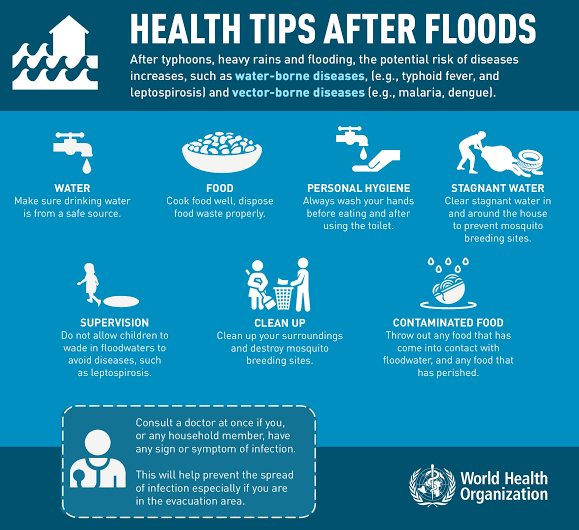
Final Thoughts
In the midst of a flash flood, let’s have in mind that our good health is our greatest asset. When we fail to take care of ourselves, then we are unable to take care those around us; thus adding salt onto the wound of the already existing floods. Let’s choose to be safe, stay safe and strive for good health.
Cynthia ❤❤❤

